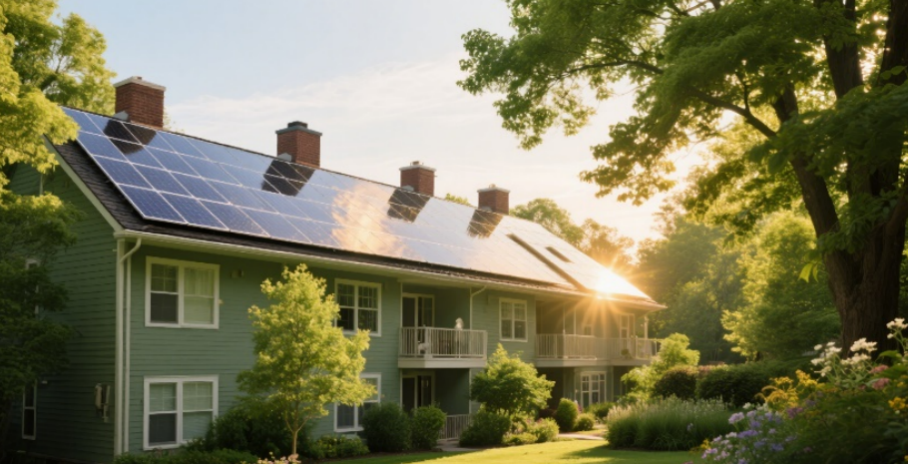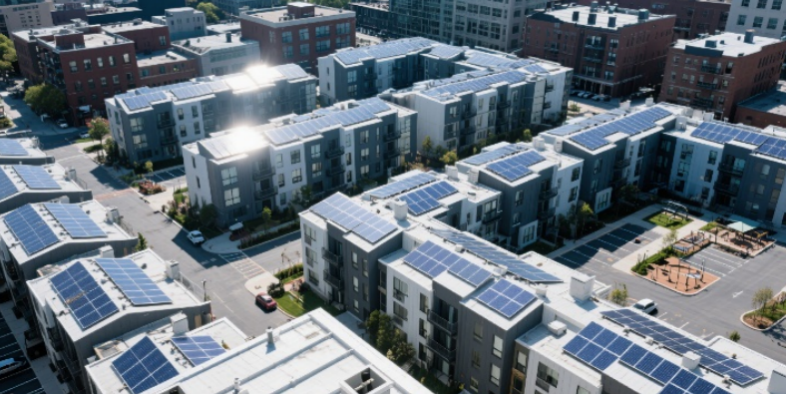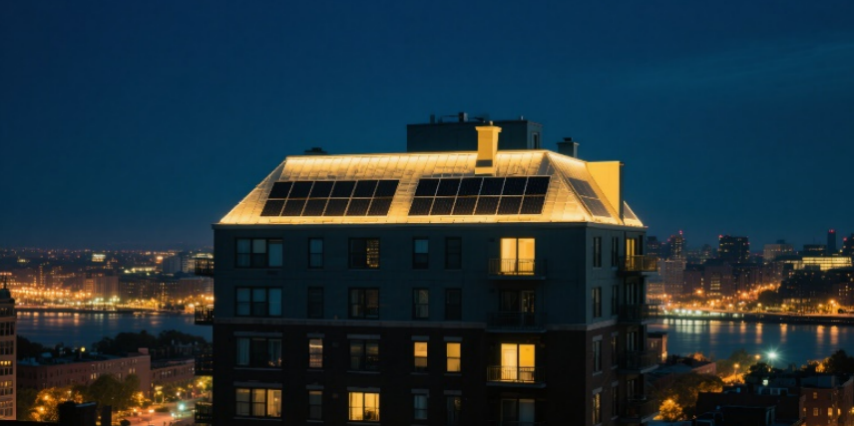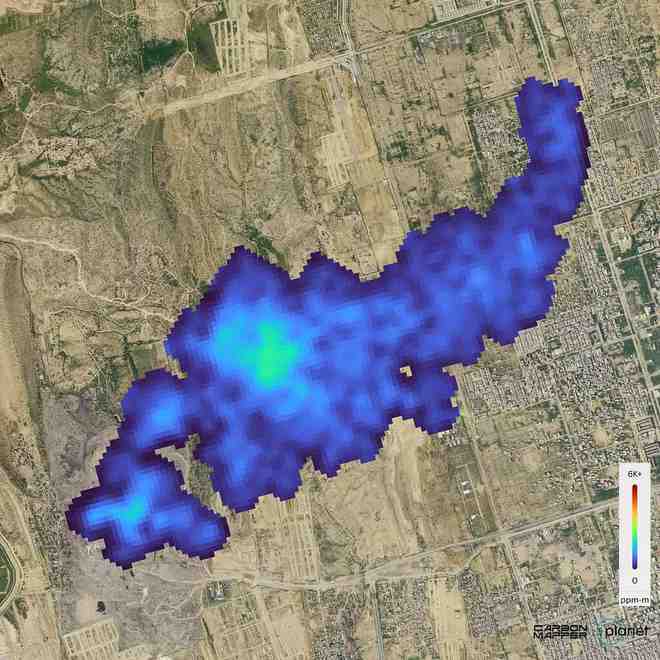The Smart Home Premium Effect: How Boston Condos with Solar Roofs Achieve 18% Rent Premiums

In Boston’s competitive rental market, where sustainability and innovation intersect, a striking trend has emerged: apartments featuring Tesla Solar Roofs command an 18% rent premium over conventional units, according to 2024 Zillow data. These “net-zero” homes—blending environmental responsibility with technological sophistication—are reshaping value for both eco-conscious renters and strategic investors, proving that green living can deliver tangible financial benefits.
The 18% Premium: A Blend of Savings and Status
Zillow’s analysis of 5,000 Boston properties reveals two core drivers behind this premium. First, the allure of reduced energy costs: a Solar Roof cuts household electricity bills by 60–70%, saving tenants $1,200–$1,500 annually—critical in a city where energy prices are 20% above the national average ($0.22/kWh). Second, the appeal of modern, tech-integrated living: Solar Roofs serve as centerpieces of smart home ecosystems, pairing with apps for real-time energy tracking, smart thermostats, and EV charging readiness. For millennials and Gen Z—who make up 45% of Boston renters—this blend of sustainability and convenience isn’t a perk; it’s a lifestyle essential.
A 2.3% Yield Advantage: The Investor’s Edge
Beyond higher rents, net-zero homes offer the promise of stronger financial performance. Zillow reports a 4.8% net rental yield for solar-equipped units, versus 2.5% for standard apartments—a 2.3% edge driven by lower operational costs and faster leasing. Solar systems offset 80–90% of a building’s electricity use, saving a typical 10-unit complex $24,000 annually. Additionally, green-certified properties rent 30% faster in Boston, with solar units taking just 14 days to lease compared to 21 days for non-solar counterparts—a significant advantage in a market with a tight 3.2% vacancy rate.
Tesla Solar Roof: Balancing Upfront Cost and Long-Term Gain
While the $35,000–$45,000 investment (post-30% federal tax credits) for a typical condo may seem steep, the ROI narrative is compelling. Annual rent premiums alone add $6,300 per unit, while partial utility savings captured by landlords can add another $600–$1,200. This creates a yearly benefit of $7,500–$8,000, leading to a 5–7 year payback period—well within the system’s 25-year warranty. A 2023 Lawrence Berkeley National Laboratory study also notes that solar-integrated properties appreciate 10–15% more than comparable homes, future-proofing investments against market fluctuations.

Case Study: The Edison’s Solar-Driven Success
The Edison, a South Boston condo complex, exemplifies this model. After a 2022 Solar Roof retrofit, rents for identical units rose from $3,200 to $3,750 monthly (an 18% premium), while energy costs dropped 70%. The $1.8 million project paid for itself in 6.5 years, driven by both rent increases and operational efficiencies. Tenants cited “zero-carbon living” and smart home integration as key reasons for choosing the building, highlighting a shift toward sustainability as a primary amenity.
Why Boston Leads in Solar-Powered Rentals
Boston’s success stems from a unique mix of factors: strict net-zero building mandates (aiming for all structures to be carbon-neutral by 2050), high energy costs, and a renter demographic that prioritizes eco-friendly living. Here, Solar Roofs have transitioned from a niche upgrade to a market standard, with tenants increasingly viewing energy efficiency as non-negotiable—on par with in-unit laundry or pet policies.

The Bottom Line for Investors
In an era where ESG criteria shape portfolios, solar-integrated rentals offer a strategic advantage. They attract premium tenants, reduce exposure to rising energy costs, and align with global decarbonization goals. While the upfront investment requires planning, the combination of 18% rent premiums, 2.3% higher yields, and a 5–7 year payback period makes this a forward-looking play. For Boston investors, the message is clear: sustainability isn’t just ethical—it’s profitable.
As the city marches toward a greener future, properties that blend innovation with efficiency won’t just meet demand; they’ll set the standard. In Boston’s competitive real estate landscape, the smart home premium proves that what’s good for the planet can also be great for the bottom line—making solar-powered living a win for both tenants and investors.
(Writer:Galli)





